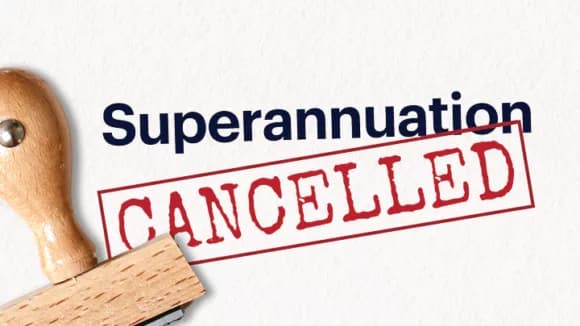
Property Investment
What should my retirement plan look like?
Thinking about retirement? The Epic Guide to Retirement Planning is the guide that will give you the knowledge so you can plan for your retirement in 2023
Retirement
7 min read

Author: Andrew Nicol
Managing Director, 20+ Years' Experience Investing In Property, Author & Host
Reviewed by: Laine Moger
Journalist and Property Educator, holds a Bachelor of Communication (Honours) from Massey University.
New Zealanders are getting older. We’re living longer and having fewer babies, meaning that NZ superannuation costs the country more money.
That’s leading some property investors to ask: “Will NZ Super still be around in 20 years?”
And if you’re a property investor planning your retirement, you need to think carefully about whether you want to rely on NZ Super (or not).
In this article, you’ll learn the two opposing arguments – one suggesting NZ Super will be substantially changed; the other argues it will remain largely intact.
That way, you can decide whether to include the pension within your plans.
Quick Takes:
Do you have a question or comment about the NZ superannuation? Feel free to leave your thoughts in the comment section at the end of the page.
Superannuation is increasingly unaffordable. This is all down to how it’s funded.
Many Kiwis assume that you spend your working life paying taxes and the government takes that money, invests it, and gives it back to you when you retire (through the pension).
That’s not how it works.
Here’s what really happens –
The problem is that people are living longer, so way more retirees need to be supported. But we’re also having fewer babies, so there are fewer workers to pay for pensioners.
In 1983 the average Kiwi was expected to live until 74. Forty years later, it’s 83 (9 years longer). In another 40 years (2063) that is expected to grow to 88 (another 5 years).
While that’s a good thing (people are living longer), it does mean retirees are becoming more expensive.
Let’s spell it out. In 1983, if you retired at 60 and died at 74 (the average life expectancy in 1983), you required superannuation for 14 years.
In 2063, you require superannuation for 23 years if the age of eligibility does not change.
In 1957 there was a massive ‘baby boom’. At that time, the average female had 4 babies.
That was great at the time because the baby boomers have been working over the last few decades. There have been lots of workers to pay for superannuation.
But here’s the issue – 1958 was exactly 65 years ago. Those baby boomers are retiring this year.
A fresh wave of boomers will be eligible for NZ superannuation this year.
But now, the average woman has 1.8 babies.
Because we are having fewer babies there aren’t as many people entering the workforce. That means each retiree is being supported by fewer and fewer people.
Currently, each retiree is being supported by 4 working people. So, you and 3 other people must pay for a quarter of a pensioner’s superannuation each.
But in 25 years each pensioner will be supported by an average of 2.7 people.
So, each taxpayer is now paying for more than a third of a retiree’s income. In other words, each worker has to pay for more of a retiree’s income.
This will not be affordable over the long term if NZ superannuation stays in its current form.
That is why substantial changes will be needed.
On the flip side, there are clear arguments that NZ superannuation won’t be substantially changed.
NZ Superannuation may become more expensive, but politicians are unlikely to suggest making large-scale changes.
That’s because retirees make up a quarter of the people who vote (not just those who say they do).
In addition, people aged 45-65 make up another 35% of voters.
So, 60% of the people casting votes are those with a vested interest in the pension system staying mainly intact.
And that’s not for lack of political will. A lot of politicians have said they would increase the age of eligibility:
Over the last 12 years, increasing the age of eligibility has been suggested, but the politicians leading the charge didn’t get voted in.
The Retirement Commission represents the interests of retired New Zealanders.
Historically, they have flip-flopped on the question of raising the age of eligibility.
In 2016 they came out strong, saying the age of eligibility should be raised to 67 because of unaffordability.
In 2019, they revised their stance, suggesting it should stay the same.
In 2022, they took a hard stance against raising the age even though the OECD recommended the age of eligibility be linked to life expectancy.
The Retirement Commission specifically made this recommendation because not all retirees are the same.
For instance, some people reach the age of eligibility and don’t have as much wealth. Others, such as people from ethnic groups, women, and people with disabilities, rely more on government support.
What actually happens to NZ superannuation is anyone’s guess, but it is likely to be somewhere in the middle of the two opposing arguments.
It probably won’t be cancelled altogether. But, there will likely be changes made over the years. In our view, here at Opes Partners:
1. The “age of eligibility” is likely to be raised
2. We also believe some form of means testing will be introduced at some point.
Means testing is where the pension is only given to people who don’t have a lot of money.
If you have wealth above a certain amount, e.g. $500,000, you might get a smaller pension or not get any government support.
Means testing is used (at least in part) in the UK, the US, Australia, Belgium, Italy, Austria,
Hungary and Ireland. So, it’s not without precedent.
This is likely to be considered because some vulnerable groups require more government support. On the other hand, some groups aren’t as reliant on the pension.
We also anticipate means testing will be more politically possible than continually raising the age of eligibility.
Crystal ball gazing about the future of the pension is vital for Kiwis planning their retirement.
For example, let’s say that as part of your Wealth Plan you want to live on a passive income of $100k a year, funded by investment properties and the NZ superannuation.
Here’s what your income might look like:
In this example, you are counting on superannuation to make up $25k of that $100k.
If a means test is introduced, the government might say: “Live on that $75k first, and then come back to us if you don’t have any money.”
Or, they could say, “If you have assets over $1 million, you get a reduced super. You get no super if you have assets over $2 million.”
We’re making these numbers up, as an example. But, the critical point here is that:
there is a good chance that (while the pension will still exist) you might not have access to it.
This will have a significant impact on your desired lifestyle because you’re unable to live on the same income you wanted.
This is why, if you:
1. intend to have a decent-sized passive income for your retirement (e.g. $100k), or
2. expect to have a significant number of assets
it’s a good idea to leave superannuation out of your plan. You could be means tested.
When to include superannuation within your retirement plan –
When to leave superannuation out of your retirement plan –
The key message is that while we don’t believe Super will be cancelled, it’s likely to change.
So, if you’re a property investor (especially if you’re more than 15-20 years away from retirement) and want to remove any uncertainty, plan for superannuation not to be there. That way, you don’t have to worry about whether you will have enough assets.
If it’s still there, you’ve got a nice bonus.
Managing Director, 20+ Years' Experience Investing In Property, Author & Host
Andrew Nicol, Managing Director at Opes Partners, is a seasoned financial adviser and property investment expert with 20+ years of experience. With 40 investment properties, he hosts the Property Academy Podcast, co-authored 'Wealth Plan' with Ed Mcknight, and has helped 1,894 Kiwis achieve financial security through property investment.
This article is for your general information. It’s not financial advice. See here for details about our Financial Advice Provider Disclosure. So Opes isn’t telling you what to do with your own money.
We’ve made every effort to make sure the information is accurate. But we occasionally get the odd fact wrong. Make sure you do your own research or talk to a financial adviser before making any investment decisions.
You might like to use us or another financial adviser